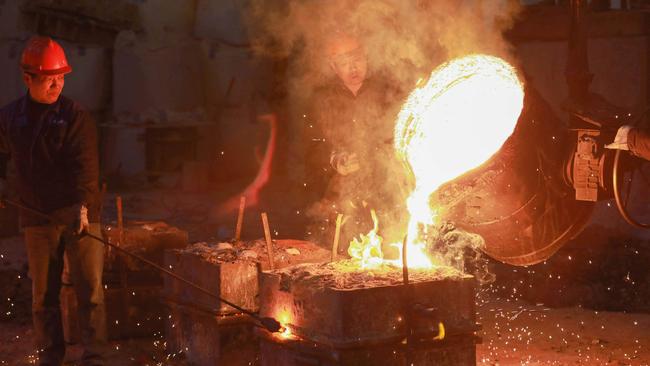
This comes amid reports that hopes of an exemption for Australian exports to the US fade.
A key focus is on the impact on global trade of US tariffs on China which is already facing a steel glut.
Reports this week claiming the government was investigating ways to give it the power to take anti-dumping action without waiting for industry complaints, highlights the perceived need to be seen to be doing something. But the fact is, the government already has the power to initiate its own investigations, under section 269 of the Customs Act.
The Australian steel and aluminium companies have also proved particularly adept at using anti-dumping measures to protect themselves from imports.
Dumping happens when goods are imported at below the normal cost in the country of origin and cause injury to the local industry.
The duties imposed boost import prices which hurt downstream users by raising input prices which in turn increases final prices.
In recent months, some downstream producers have also made their own complaints against importers, but most steel complaints come from Sanjeev Gupta’s embattled InfraBuild and BlueScope.
Industry Minister Ed Husic, after an 11-month delay, late last year appointed former Victorian industry official David Latina as head of the Anti-Dumping Commission.
The last 10 cases on the commission’s website include six steel products, two aluminium, silicon and tomatoes.
Steel accounts for 83 per cent of all cases before the commission and 71 per cent of measures imposed when dumping is found.
China is the prime market for Australia imposing dumping duties with 18 measures in place and another 11 centred on government subsidies. South Korea is next highest at seven and Malaysia at six.
This means China exporters are effectively already covered by Australian dumping duties.
The dumping regime applies globally under the World Trade Organisation to encourage fair trade but practically has the same impact as imposing higher tariffs.
When the government investigates a dumping complaint, trade is effectively halted because both importers and exporters are unwilling to take the risk of importing goods when a duty may be imposed.
Industry Minister Ed Husic was approached for comment.


The federal government is keen to show industry it is ready to respond to the fallout from US tariffs on global steel and aluminium trade, but to maintain relations with China it needs to do so under global trade rules.